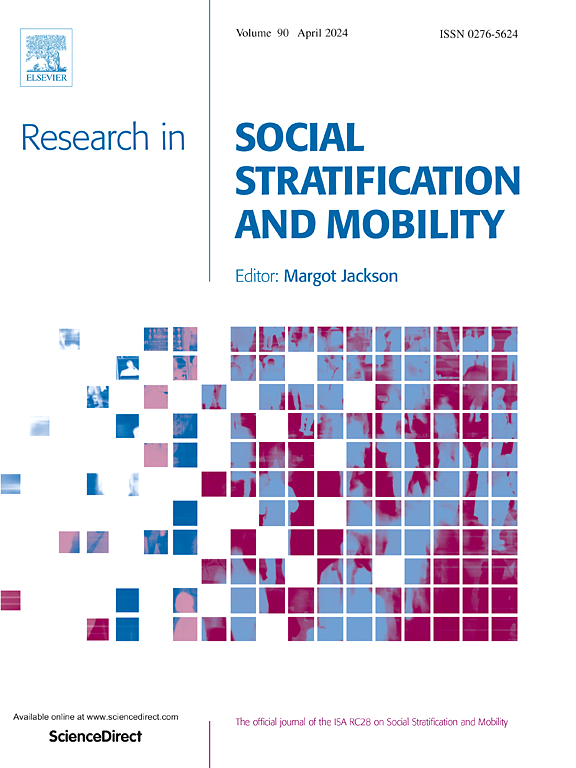“全民大学”时代教育的性别价值以及识字和算术技能的作用
IF 2.7
1区 社会学
Q1 SOCIOLOGY
引用次数: 0
摘要
尽管女性的受教育程度比以往任何时候都高,但她们的收入仍然低于男性。利用国际成人能力评估项目(PIAAC)提供的来自26个国家的数据,我们研究了受过大学教育的成年人的供应如何影响当今劳动力市场中受教育程度价值的性别差异。我们的分析揭示了对女性不利的两个相互关联的过程。首先,在高供给的背景下,女性获得大学文凭的比例更高,但在获得高认知技能(尤其是计算能力)方面受到更多限制,导致她们的文凭和技能之间不一致。其次,在高供给背景下,大学文凭在获得高薪方面的回报对男女都有所下降,而认知技能的重要性保持稳定。认知技能在高供给环境中越来越重要,尤其是对女性来说,但大学文凭仍然是抵御低薪的更有力保障。这些结果揭示了教育奖励在供给背景和收入分配中的性别模式,为男性和女性追求教育的不同动机和性别差距的停滞提供了见解。解决性别工资差距问题需要采取综合办法,既要提高受教育程度,又要优先发展高认知技能,特别是在妇女中。本文章由计算机程序翻译,如有差异,请以英文原文为准。
The gendered value of education in the ‘college-for-all’ era and the role of literacy and numeracy skills
Despite attaining higher education levels than ever before, women continue to earn less than men. Using data from 26 countries obtained from the Programme for the International Assessment of Adult Competencies (PIAAC), we examine how the supply of college-educated adults shapes gender differences in the value of educational attainment in today's labor market. Our analysis reveals two interrelated processes that disadvantage women. First, in high-supply contexts, women acquire college credentials at higher rates but are more constrained in acquiring high cognitive skills, particularly numeracy, leading to a misalignment between their credentials and skills. Second, in high-supply contexts, the returns to college credentials in accessing high pay decrease for both genders, while the importance of cognitive skills remains stable. Cognitive skills are increasingly vital in high-supply contexts, particularly for women, but college credentials remain a stronger safeguard against low pay. These results shed light on the gendered patterns of rewards to education across supply contexts and the income distribution, providing insights into the different incentives of men and women to pursue education and the stalling of the gender gap. Addressing the gender pay gap requires a comprehensive approach that both enhances educational attainment and prioritizes the development of high cognitive skills, particularly among women.
求助全文
通过发布文献求助,成功后即可免费获取论文全文。
去求助
来源期刊
CiteScore
7.80
自引率
6.00%
发文量
46
期刊介绍:
The study of social inequality is and has been one of the central preoccupations of social scientists. Research in Social Stratification and Mobility is dedicated to publishing the highest, most innovative research on issues of social inequality from a broad diversity of theoretical and methodological perspectives. The journal is also dedicated to cutting edge summaries of prior research and fruitful exchanges that will stimulate future research on issues of social inequality. The study of social inequality is and has been one of the central preoccupations of social scientists.

 求助内容:
求助内容: 应助结果提醒方式:
应助结果提醒方式:


